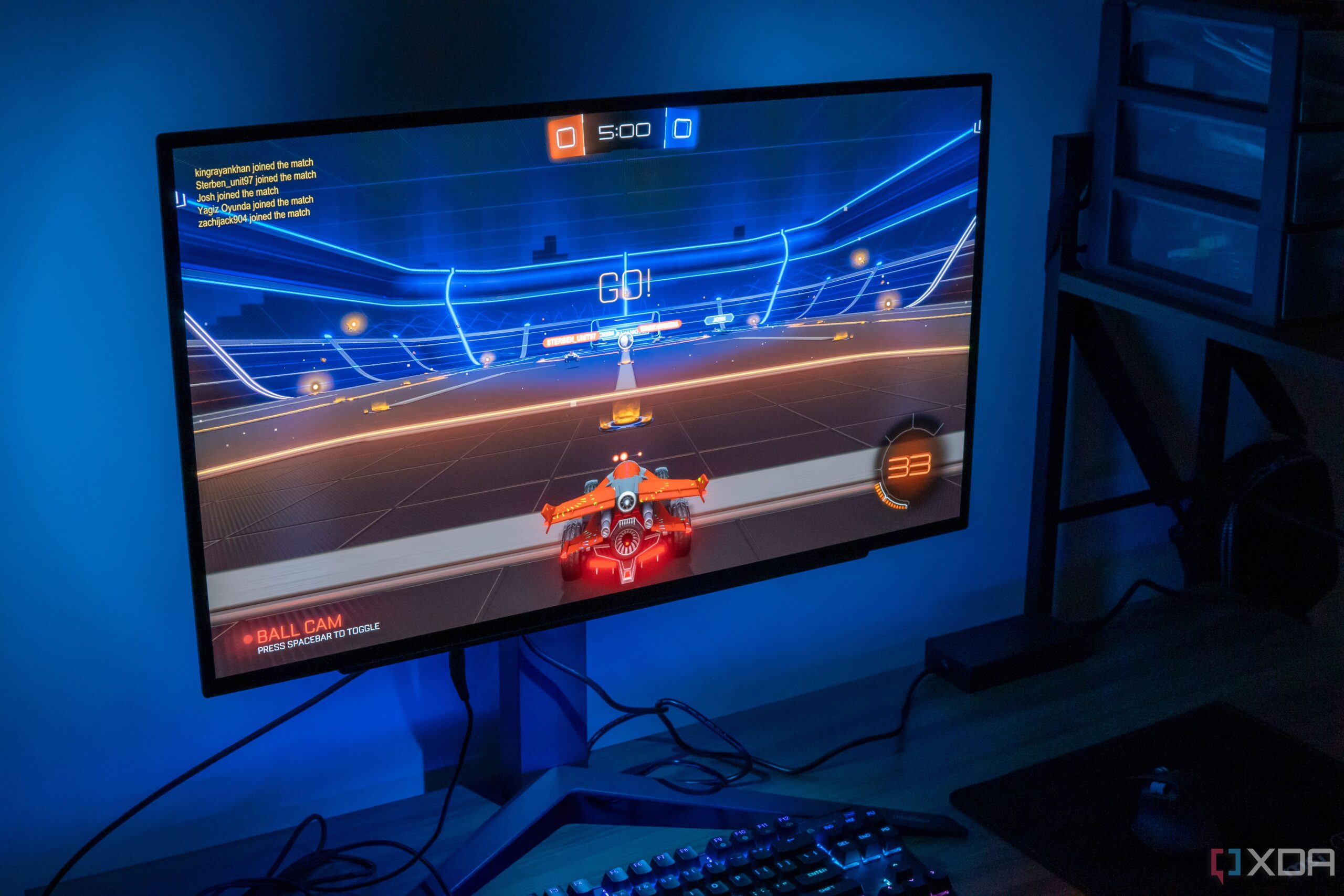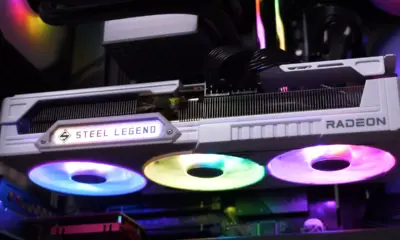Technology
Why Gamers Are Choosing 1440p Over 4K Displays

Many gamers are reconsidering their transition to 4K gaming displays, opting instead for the 1440p resolution. This trend has gained traction particularly among players using high-end graphics processing units (GPUs) such as the RTX 3090 and RTX 4090. While 4K monitors, like the LG 27GN950, initially promise stunning visuals, many find that the trade-offs in performance can detract from the overall gaming experience.
One of the primary challenges with 4K gaming is the demand for native rendering. Despite advancements in technology, achieving consistent performance in AAA titles with 4K resolution remains a significant hurdle. Even with powerful GPUs, such as the RTX 4090, maintaining 60 frames per second (FPS) can be difficult in high-demand games like Cyberpunk 2077 and Assassin’s Creed: Shadows. This is particularly true when features such as ray tracing are enabled, leading many gamers to rely on technologies like DLSS (Deep Learning Super Sampling) and FSR (FidelityFX Super Resolution). However, these solutions can introduce their own complications, including image quality issues and increased input lag.
Performance vs. Visual Quality
While the allure of 4K is undeniable, gamers who prioritize performance are finding 1440p to be more suitable for their needs. Competitive gamers, in particular, are drawn to the higher frame rates that 1440p can provide. For example, titles like Valorant, Apex Legends, and Fortnite benefit from the responsiveness associated with frame rates above 60 FPS. Many players report that anything below 100 FPS feels sluggish, impacting their competitive edge.
At 1440p, games can run at 100 FPS or higher, delivering smoother animations and reduced input lag. This performance is especially noticeable on high-refresh-rate monitors, such as 360Hz OLED displays. While 4K offers exceptional clarity, the difference in fluidity and responsiveness at 1440p often outweighs the visual benefits for many gamers.
Future-Proofing Gaming Experiences
Another compelling reason for sticking with 1440p is the potential for future-proofing. As game graphics continue to evolve, players using top-tier GPUs will find it easier to maintain high-performance settings without needing frequent upgrades. This is particularly relevant given the rising costs of high-end graphics cards. In fact, many gamers have reported that they can bypass an entire generation of GPU technology while still enjoying smooth gameplay in the latest titles.
Gamers have realized that by choosing 1440p, they do not have to compromise on visual quality. Modern OLED panels deliver vibrant colors and deep blacks, enhancing the overall gaming experience. As a result, players can fully immerse themselves in open-world adventures or engage in competitive matches without sacrificing performance.
Ultimately, the decision to favor 1440p over 4K reflects a broader understanding of what constitutes an optimal gaming experience. While the visual appeal of 4K remains significant, the balance of performance, responsiveness, and future-proofing considerations makes 1440p a compelling choice for many gamers. This shift signifies a growing awareness that gaming is not solely about resolution; it is also about how smoothly and responsively those games play.
-

 Technology4 months ago
Technology4 months agoDiscover the Top 10 Calorie Counting Apps of 2025
-

 Health2 months ago
Health2 months agoBella Hadid Shares Health Update After Treatment for Lyme Disease
-

 Health3 months ago
Health3 months agoErin Bates Shares Recovery Update Following Sepsis Complications
-

 Technology4 weeks ago
Technology4 weeks agoDiscover 2025’s Top GPUs for Exceptional 4K Gaming Performance
-

 Technology2 months ago
Technology2 months agoElectric Moto Influencer Surronster Arrested in Tijuana
-

 Technology4 months ago
Technology4 months agoDiscover How to Reverse Image Search Using ChatGPT Effortlessly
-

 Technology4 months ago
Technology4 months agoMeta Initiates $60B AI Data Center Expansion, Starting in Ohio
-

 Technology4 months ago
Technology4 months agoRecovering a Suspended TikTok Account: A Step-by-Step Guide
-

 Health4 months ago
Health4 months agoTested: Rab Firewall Mountain Jacket Survives Harsh Conditions
-

 Lifestyle4 months ago
Lifestyle4 months agoBelton Family Reunites After Daughter Survives Hill Country Floods
-

 Technology3 months ago
Technology3 months agoUncovering the Top Five Most Challenging Motorcycles to Ride
-

 Technology4 months ago
Technology4 months agoHarmonic Launches AI Chatbot App to Transform Mathematical Reasoning












